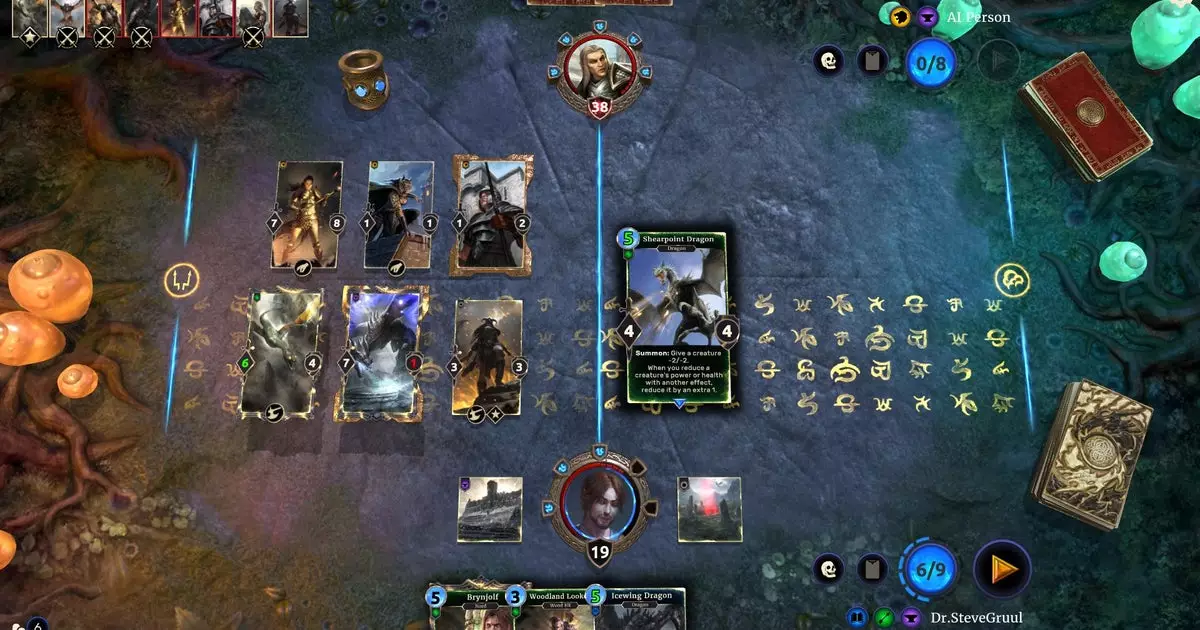The announcement of The Elder Scrolls: Legends’ impending server shutdown on January 30, 2025, has reverberated through the gaming community, marking a significant moment in the life cycle of this once-promising card game. After being available for several years on the Steam platform, the game has been removed from sale, leaving players with a bittersweet memory of what could have been. The message displayed on Steam is stark, detailing that the game will become entirely unplayable post-shutdown. This closure underscores the broader challenges facing games in the free-to-play genre, particularly those that fail to sustain a dedicated player base.
Released to an eager audience in 2017, The Elder Scrolls: Legends sought to carve its niche in an already saturated market dominated by the likes of Hearthstone. Critics noted its innovative rune system, which introduced additional strategic depth to the gameplay. However, despite these merits, Legends struggled to maintain momentum; its last meaningful update came two years later, and players’ interest waned. The notion that a game could be abandoned after such a brief period of support is disheartening. It casts a shadow over the wealth of creativity and resources that went into creating the game, leaving behind an air of neglect.
A Broader Concern for Digital Games
The fate of Legends represents a troubling trend prevalent in the gaming industry, particularly regarding live-service and free-to-play models. Titles can rise and fall with alarming speed, leading to a sense of insecurity among players. The absence of offline modes — which could at least allow players to revisit the game — contributes to an unsettling reality where digital experiences can vanish without notice. This phenomenon raises compelling questions about the sustainability of player investment in these games. Players who have dedicated time and resources may feel robbed of their accomplishments when the servers go dark, a feeling that is highly characteristic of today’s digital offerings.
The discontinuation of The Elder Scrolls: Legends contributes to the growing discourse about how video games treat their audiences and the cultural ramifications of such decisions. Unlike films or literature, where works can endure through various formats and remain accessible, the ephemeral nature of digital games poses a unique risk for game preservation. The gaming industry must confront these issues if it wishes to cultivate a loyal community. Future endeavors might focus on more sustainable practices, ensuring that players can find value in the time spent within these virtual realms.
While the world of The Elder Scrolls: Legends may soon become a closed chapter, it serves as a poignant reminder of the fragility of digital experiences. As developers and publishers navigate the complexities of player engagement and financial sustainability, lessons from Legends’ demise might guide future projects toward ensuring their longevity and continued enjoyment for their player bases.


Leave a Reply